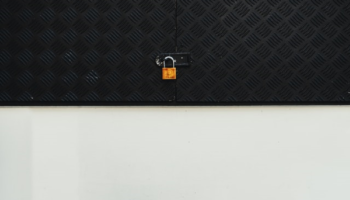Last month, the Belgian Parliament voted in favour of a set of measures that are notably meant to clarify the regulatory landscape of the operators active in the manufacturing of Advanced Therapy Medicinal Products (ATMPs), a category of medicinal products that includes gene therapies, cell therapies and tissue-engineered products.
The use of human tissues and cells in medicinal products is widely harmonized in the EU, given that it is regulated through (i) a Regulation (Regulation (EC) No 1394/2007) based on the Community Code for a medicinal product and (ii) a set of directives, based on Directive 2004/23/EC, that define quality and safety standards, as well as a traceability system, for all human tissues and cells intended for human applications.
The administrative supervision and the enforcement of those harmonised requirements is however widely left to the Member States, resulting in diverging approaches in terms of licensing and accreditation of the operators involved in activities performed with human tissues or cells.
In Belgium, the matter is subject to a Federal law of 19 December 2008 on the procurement and use of human biological material (the ‘HBM Act’). The HBM Act distinguishes between four types of establishment, in function of the type of operations they can be accredited to perform, namely:
- banks of human biological material – a type of structure that is mandatorily linked to an accredited hospital and that can be licensed for carrying out any type of operation with HBM;
- production establishments – structures that may be accredited to carry out any type of operation with human biological material, but only to the purpose of manufacturing autologous ATMPs;
- intermediary establishments of human biological material – see below; and
- biobanks – a type of establishment that is only entitled to carry out activities relating to scientific research without any human application.
Until now, the scope of activities that intermediary establishments could be accredited for was limited. In particular, intermediary establishments were not eligible for any licence as importer of human biological material. Furthermore, for all their activities, these establishments were required to operate jointly with a bank of human biological material meaning that they were bound to a hospital.
The HBM Act has placed, in fact and in law, the sector of allogenic ATMPs under the mandatory supervision of the hospital sector. For example, a company based in Belgium, manufacturing an allogeneic cell therapy product for French patients from cells collected in the US is obliged to enter into a collaboration agreement with a Belgian hospital’s cell bank, even though the latter was not involved at all in the manufacturing as such. Another point that was problematic until now is that in cases where human biological material collected in Belgium was needed for the manufacturing of allogeneic ATMPs, banks of human biological material did not have clear guidance as to the criteria to be used for the allocation of the material.
The changes adopted in October by the Parliament intend to address these issues, by providing more independence to intermediary establishments and a clear framework and set of criteria for the allocation of human biological material collected in Belgium by banks of human biological material.
More specifically, intermediary establishments will no longer be obliged to conclude a collaboration agreement with a bank for human biological materials where their activities do not involve material collected in Belgium. Their responsibilities will, in exchange, be extended, as they will be directly in charge of ensuring that the human biological material they carry out their activities with, complies with all requirements defined pursuant to EU legislation, in terms of quality, safety and traceability. The intermediary establishments will also be entitled to import human biological material directly from outside the EU, as well as to engage into operations with tissue establishments located in other EU countries, without having to involve a Belgian accredited bank for human biological material in the process.
As far as the allocation of human biological material by banks is concerned, a procedure is put in place to ensure equal and non-discriminatory allocation, on the basis of pre-determined allocation criteria. The HBM Act requires that the managers of banks of human biological materials ensure that access to human biological material is based on transparent criteria and on the basis of an objective evaluation of the medical needs. An appeal committee, the “Human Biological Material Allocation Committee (HBMAC)” (Allocatiecomité voor menselijk lichaamsmateriaal or ‘ACMLM’ in Dutch / Comité d’allocation du materiel corporel humain or ‘CAMCH’ in French) is also created under the new legal provisions. The law provides that operators that would have concerns regarding a decision on the allocation of human biological materials, or regarding the allocation criteria that a bank would propose, may raise the case before the HBMAC and seek a ruling on the issue.
The legislative changes still have to be published in the Belgian Official Gazette. They will enter into force on a date that will be determined by Royal Decrees that will also set out the practical terms to implement those new changes, such as new procedural rules and requirements for the accreditation of intermediary structures, the rules of procedure before the HBMAC. Standard/default allocation criteria for human biological material collected in Belgium are also expected to be defined.
The text adopted in the Parliament is available here.



